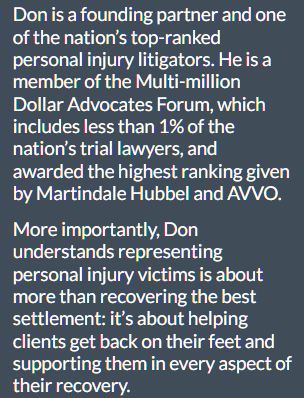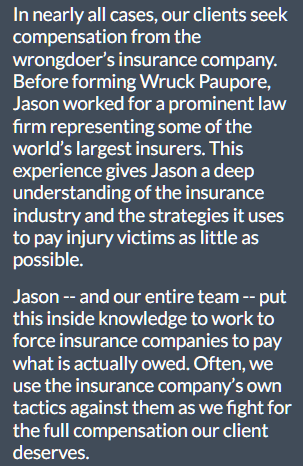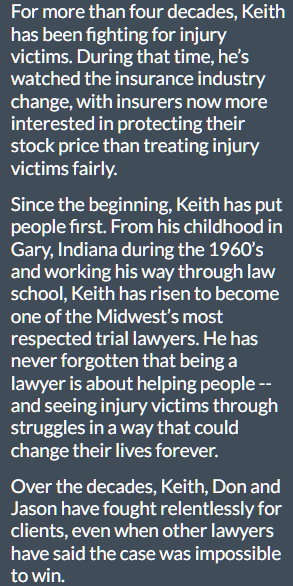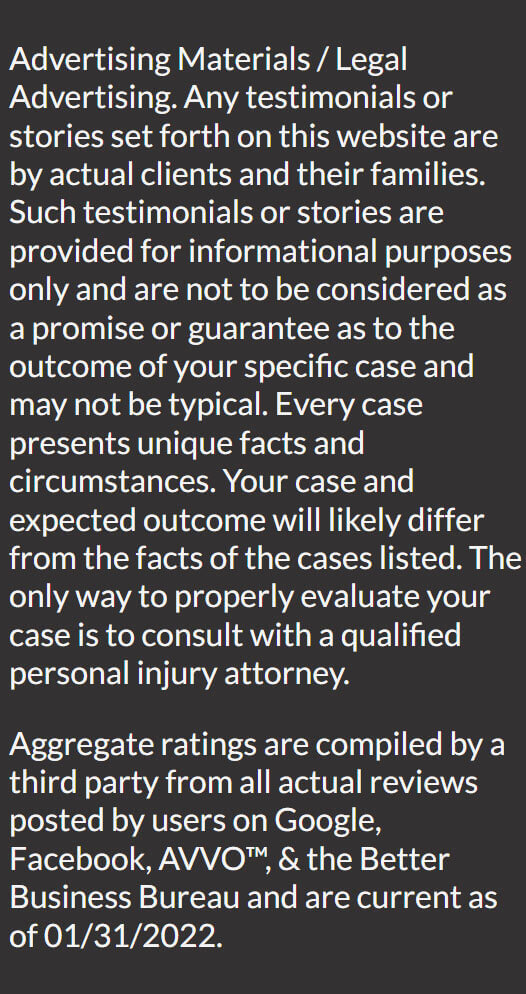




Abuse in nursing homes is a serious issue that is only exacerbated when negligent facilities fail to address or identify abuse committed by other residents.
When resident-to-resident nursing home abuse happens, facilities might share liability. This is because nursing homes owe a duty of care to residents. Involved in this duty of care is a responsibility to keep residents safe. Failure to provide adequate security, oversight, or medical care could make nursing homes ignorant to abuse, also making them liable. Furthermore, getting reports of abuse and doing nothing about it would also make a facility negligent. After learning about abuse, families of victims should encourage them to report it to nursing homes and then get them to a safe facility. We can use reports of abuse, incident reports from law enforcement, and other communications records when preparing a case.
For a free and confidential case review from Wruck Paupore, call our nursing home abuse lawyers at (219) 322-1166.
Though not as common as abuse from nursing home staff, resident-to-resident abuse and mistreatment is an unfortunate issue in senior living facilities.
Resident-to-resident abuse makes up about 22% of nursing home abuse cases. Resident-to-resident abuse typically includes sexual, physical, and psychological abuse. Recognizing abuse from another resident might be even more challenging than recognizing abuse from a staff member, and staff might brush off reports of altercations as misunderstandings, failing to take reports seriously and letting abuse continue.
Because many cases of nursing home abuse, namely sexual abuse, go unreported, there may be more instances of these mistreatments than what is known.
Damages from nursing home abuse are great, and feelings of extreme isolation often compound victims’ pain and suffering. In addition to non-economic damages, abuse might cause serious medical issues and complications, especially for victims in already poor health or with medical conditions. Physical abuse often causes injuries like sprains, fractures, contusions, and lacerations.
While resident-to-resident abuse happens and is more likely to occur in institutional establishments like nursing homes, it is less common than abuse from staff, another reason why reported numbers might not reflect the true amount of these cases.
Signs of resident-to-resident nursing home abuse include a resident’s sudden decline in health, unexplainable injuries, and depression. These are signs of abuse in general and could mean that a staff member, not another resident, is abusing a victim. Because of this possibility, an investigation is often necessary to determine who is personally responsible and which other parties or entities might share liability.
The abuser, whether they are another resident or staff member, is not necessarily the only one who shares liability for a victim’s damages. Because nursing homes have a duty to keep their residents safe, permitting abuse in any way can make them liable for victims’ damages from abuse.
When seniors and their families choose nursing homes, they expect a safe environment free from dangers like abuse. Nursing homes are responsible for maintaining that environment and can do so by implementing safety measures, such as surveillance systems and staff training. Failure to catch abuse, whether committed by a resident or staff member, could be a breach of that duty.
Nursing homes provide medical services, and patients might need regular medications or physical examinations. If another resident is abusing a victim and physically injures them, nursing home medical staff should recognize the injuries during physical evaluations and proceed accordingly. Failure to do so would also be a breach of duty.
Furthermore, if staff neglect a resident who is already being abused by another resident and thus fail to identify abuse, that would only compound their abuse, making the nursing home liable for the victim’s damages.
There are various reasons why nursing home facilities may be liable for abuse committed by another resident. Indiana, unlike many states, maintains special rules under the Indiana Supreme Court Stropes decision which can impose a heightened duty to keep residents safe from harm from other residents. If you contact our office, we can explain this special legal rule to you in more detail and whether it would apply to the circumstances of your case.
Reporting nursing home abuse committed by another resident is important so that victims have documentation of what happened to them. These records can also help our lawyers when preparing victims’ cases against abusers and liable nursing homes.
If a senior in your life recently came to you about abuse from another resident, ask them if they have already reported it to the nursing home. If they have and the facility did nothing to assist and protect the victim, tell our nursing home abuse lawyers, as this could indicate the facility’s negligence.
If they have not reported the abuse, encourage them to confide in a trusted staff member and offer to accompany them. It is important to inform the nursing home administration of the situation so that they can involve the police and remove the other resident. For cases involving nursing homes as liable parties, victims should move to another, safer establishment.
In addition to encouraging victims to report the abuse, families should also encourage them to seek medical treatment. All types of abuse might cause physical injuries that require treatment and compensation.
Law enforcement typically gets involved in these situations, as they should. While any potential criminal investigation or case involving the other resident or nursing home will be separate from your civil case, our lawyers may get incident reports from the police when preparing your claim.
Our lawyers can get copies of reports and refer to them when building a case against a liable nursing home. In addition to incident reports, we will obtain any eyewitness statements, surveillance footage, medical records, and other evidence that proves liability in your case.
Wruck Paupore’s Indiana nursing home abuse lawyers can review your case for free when you call abuse (219) 322-1166.
Don is a founding partner and one of the nation’s top-ranked personal injury litigators. He is a member of the Multi-million Dollar Advocates Forum, which includes less than 1% of the nation’s trial lawyers, and awarded the highest ranking given by Martindale Hubbel and AVVO.
More importantly, Don understands representing personal injury victims is about more than recovering the best settlement: it’s about helping clients get back on their feet and supporting them in every aspect of their recovery.

In nearly all cases, our clients seek compensation from the wrongdoer’s insurance company. Before forming Wruck Paupore, Jason worked for a prominent law firm representing some of the world’s largest insurers. This experience gives Jason a deep understanding of the insurance industry and the strategies it uses to pay injury victims as little as possible.
Jason -- and our entire team -- put this inside knowledge to work to force insurance companies to pay what is actually owed. Often, we use the insurance company’s own tactics against them as we fight for the full compensation our client deserves.

For more than four decades, Keith has been fighting for injury victims. During that time, he’s watched the insurance industry change, with insurers now more interested in protecting their stock price than treating injury victims fairly.
Since the beginning, Keith has put people first. From his childhood in Gary, Indiana during the 1960’s and working his way through law school, Keith has risen to become one of the Midwest’s most respected trial lawyers. He has never forgotten that being a lawyer is about helping people -- and seeing injury victims through struggles in a way that could change their lives forever.
Over the decades, Keith, Don and Jason have fought relentlessly for clients, even when other lawyers have said the case was impossible to win.


© 2025
Terms of Service | Privacy Policy | Resources | Blog | Sitemap

© 2022 Wruck Paupore PC
Terms of Service | Privacy Policy